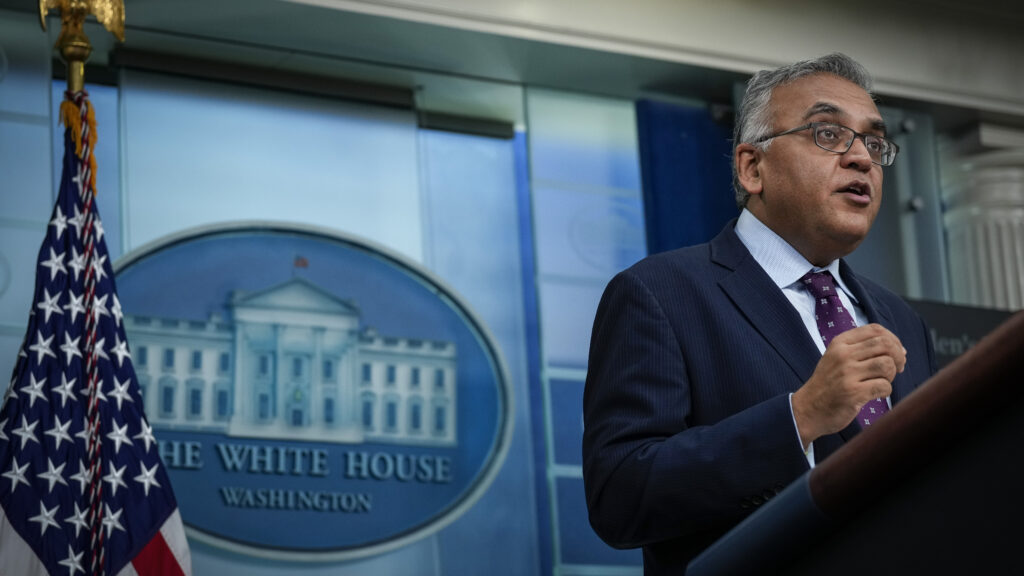WASHINGTON — The White House isn’t quite ready to launch its new pandemic response office for a neat handoff at the end of the Covid-19 public health emergency, White House Covid-19 Response Coordinator Ashish Jha told reporters Tuesday.
Jha said White House officials are in the middle of setting up an Office of Pandemic Preparedness and Response Policy that Congress mandated them to create in December, but it won’t be ready in time for a clean transfer at the end of the public health emergency ending May 11.
He deflected questions about whether he will stay on after the transition.
“Right now. I’m focused on getting us through the end of the PHE, and when I have more to announce about my future I will be happy to get that answered,” Jha said.
He also didn’t indicate who would be taking over as the point person for the Covid-19 response if he departs the administration. Jha said that public health officials at the Centers for Disease Control and Prevention, the National Institutes of Health, and the Assistant Secretary for Preparedness and Response at the health department would handle any future surges — though the CDC and NIH are in the middle of leadership transitions.
“I am still here. But in terms of moving forward, when we have announcements to make about people in specific roles, we will make those announcements,” Jha said.
The public health emergency ending will make official the decline of influence of the White House Covid-19 response team, which has seen its funding dwindle over the past year. High-profile members of that team have already departed the administration, including former National Institute of Allergy and Infectious Diseases Director Anthony Fauci and former FDA Commissioner David Kessler, who guided government dispatches of millions of Covid-19 vaccines and treatments, along with several advisors.
While the White House claims it has been out of money to address Covid-19 for more than a year, the Biden administration has continued to launch new programs. Republicans have threatened to claw back billions of dollars in unspent funds. And Congress didn’t fund the new pandemic response office, which will limit its size and influence.
Jha said that some recent initiatives, including a $5 billion project to fund research into next-generation vaccines and therapeutics, have been funded because other projects like monetary relief to health care providers and testing programs came in under the expected budget.
The administration has also run out of funds to buy up additional vaccines and treatments. While the federal government still has a stock of Covid-19 vaccines it purchased, Jha said the transition to having vaccines move through the regular health care system could be sped up if the Food and Drug Administration approves a new formulation of vaccines to address a new strain of the illness.
Jha repeatedly told reporters that the White House will need money from Congress to continue to protect people from Covid-19. He said he’s concerned about a reduction in testing manufacturing capacity since the government isn’t buying supplies, but didn’t say he will do anything differently to try to budge lawmakers that have ignored prior White House pleas for funds.
“I feel like we have been very straightforward with Congress about needs,” Jha said. “We’re going to continue communicating clearly with Congress, but always also making sure that we’re doing whatever we need to do to protect Americans.”


